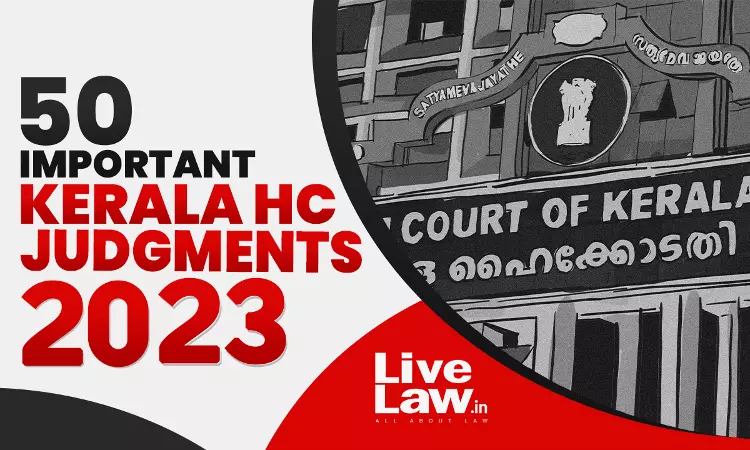- Home
- /
- High Courts
- /
- Kerala High Court
- /
- 50 Important Judgments Of Kerala...
50 Important Judgments Of Kerala High Court In 2023
Navya Benny
6 Jan 2024 9:00 PM IST
1. Assisted Reproductive Technology Act | Enforcing Upper Age Limit On Couples Who Were In The Middle Of Treatment Is Arbitrary : Kerala High CourtCase Title: XXXX v. Union Of India and Connected CasesCitation: 2023 LiveLaw (Ker) 1The Kerala High Court observed that the imposition of age restriction under the Assisted Reproductive Technology (Regulations) Act, 2021 without a...
Next Story



